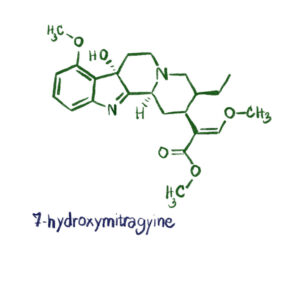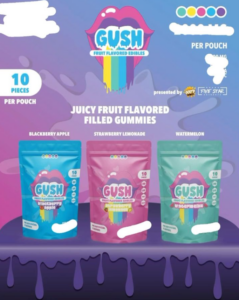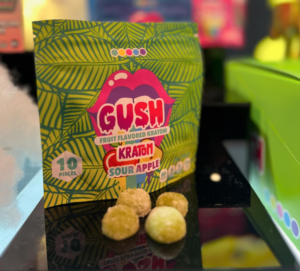THC-A, or tetrahydrocannabinolic acid, has emerged as a focal point in the rapidly evolving landscape of cannabis laws. While THC-A is a precursor to THC (the psychoactive compound found in cannabis), it does not produce the same intoxicating effects unless heated. This unique characteristic has raised questions about its legality across various jurisdictions in the United States.
Federal Status of THC-A
The federal status of THC-A is complex and, in many ways, mirrors the broader cannabis legality debate. Under the Controlled Substances Act (CSA) of 1970, THC (delta-9-tetrahydrocannabinol) is classified as a Schedule I controlled substance, indicating it is considered to have a high potential for abuse and no accepted medical use. However, THC-A itself is not explicitly listed under the CSA, leading to ambiguity regarding its legal status.
The 2018 Farm Bill, which legalized hemp and its derivatives containing less than 0.3% delta-9 THC, has further complicated the situation. Since tetrahydrocannabinolic acid is a non-psychoactive compound in its raw form, it is sometimes argued that THCA could fall under the legal protections of the Farm Bill. However, the conversion of THC-A into THC through decarboxylation (heating) means that any product containing THC-A could potentially be considered a Schedule I substance once consumed or processed.
Federal agencies, such as the Drug Enforcement Administration (DEA) and the Food and Drug Administration (FDA), have not provided clear guidance on THC-A, contributing to the legal uncertainty. The DEA has maintained that all synthetic and natural tetrahydrocannabinols, including THC-A once converted, are illegal unless derived from hemp. Meanwhile, the FDA has taken a cautious approach, warning companies about making health claims related to cannabis-derived products, including THC-A.
Public and Congressional Response
Public response to THC-A has been mixed, reflecting the broader societal divide on cannabis-related issues. Advocates argue that THC-A offers potential benefits without the psychoactive effects of THC. Additionally, since tetrahydrocannabinolic acid is naturally present in raw cannabis, it is seen as a more natural alternative to synthetic cannabinoids.
However, critics are concerned about the potential for misuse and the lack of regulation surrounding THC-A products. The possibility that THC-A could be converted into THC through improper or intentional heating methods has raised alarms, particularly among those opposed to any form of cannabis legalization. Furthermore, the inconsistency in state laws regarding THC-A has led to confusion among consumers and law enforcement alike.
In Congress, the debate over THC-A mirrors the broader discussion on cannabis legalization. Some lawmakers advocate for clear regulations that would classify tetrahydrocannabinolic acid under the same legal framework as hemp, provided it meets the 0.3% delta-9 THC threshold. Others argue for stricter controls or outright prohibition, citing concerns about public health and safety. To date, no specific federal legislation has been passed addressing the unique status of THC-A, leaving it in a legal gray area that is largely interpreted on a state-by-state basis.
THC-A Legal Status by State
The legal status of THC-A varies significantly across the United States, and below is a detailed overview of its regulations in each state.
Alabama
In Alabama, THC-A falls under the state’s broader cannabis laws. While medical cannabis is legal in limited forms, recreational cannabis remains illegal. As THC-A can convert into THC when heated, it is generally treated as an illegal substance unless prescribed under the state’s medical cannabis program.
Alaska
Alaska has legalized both medical and recreational cannabis, meaning THC-A is also legal in the state. Residents can possess and use cannabis products containing THC-A, but the same regulations that apply to THC also apply to THC-A, particularly when it comes to driving under the influence and public consumption.
Arizona
Arizona allows for the use of THC-A under its medical cannabis program. The state legalized recreational cannabis in 2020, so THC-A is now available to all adults over the age of 21. However, products must still comply with state regulations regarding labeling and potency.
Arkansas
In Arkansas, THC-A is legal for medical use under the state’s medical marijuana program. Recreational use remains illegal, so access to THC-A is limited to registered medical marijuana patients. The state’s regulations treat THC-A similarly to THC, with strict controls on production and distribution.
California
California, being one of the most cannabis-friendly states, has legalized THC-A for both medical and recreational use. The state’s robust cannabis industry offers a wide variety of THC-A products, from raw cannabis to tinctures and edibles. California’s regulations focus on ensuring product safety and transparency for consumers.
Colorado
Colorado, another pioneer in cannabis legalization, allows for the use of THC-A across the board. Both medical and recreational users can access THC-A products, which are subject to the same regulations as THC products. The state has also invested in public education campaigns to inform consumers about the differences between THC and THC-A.
Connecticut
Connecticut’s medical marijuana program permits the use of THC-A for registered patients. Recreational cannabis was legalized in 2021, extending legal access to THC-A to all adults. The state’s regulations emphasize proper labeling and consumer awareness, particularly regarding the potential conversion of THC-A into THC.
Delaware
Delaware has a medical marijuana program that includes THC-A under its list of approved substances. Recreational cannabis remains illegal, so THC-A products are only accessible to medical marijuana patients. The state’s laws require strict testing and labeling to ensure compliance with potency limits.
Florida
In Florida, THC-A is legal for medical use under the state’s medical marijuana program. Recreational cannabis is still illegal, and the state has strict regulations on the production and sale of cannabis products, including those containing THC-A. Patients must be registered and have a qualifying condition to access THC-A.
Georgia
Georgia has a limited medical marijuana program that allows for the use of low-THC oil, which may contain THC-A. However, the state’s laws are among the most restrictive in the country, and recreational cannabis remains illegal. Access to THC-A products is therefore highly limited in Georgia.
Hawaii
Hawaii’s medical marijuana program includes THC-A as a permissible substance for registered patients. The state hasn’t yet legalized recreational cannabis, so access to THC-A is restricted to medical use. Hawaii’s cannabis laws emphasize the importance of product safety and quality.
Idaho
Idaho has some of the strictest cannabis laws in the country, and THC-A is not legal under any circumstances. Both medical and recreational cannabis are illegal in the state, and possession of THC-A could result in criminal penalties. Idaho’s stance reflects a broader resistance to cannabis legalization.
Illinois
Illinois has legalized both medical and recreational cannabis, making THC-A legal for all adults. The state’s cannabis industry is well-regulated, with a focus on ensuring product safety and preventing underage access. THC-A products are widely available in dispensaries across the state.
Indiana
Indiana has not legalized cannabis in any form, and THC-A is therefore illegal. The state’s strict cannabis laws mean that possession of THC-A could lead to criminal charges. Indiana’s approach to cannabis reflects a broader conservative stance on drug policy.
Iowa
Iowa has a limited medical marijuana program that allows for the use of low-THC products, which may include THC-A. However, recreational cannabis is illegal, and access to THC-A products is tightly controlled. Iowa’s regulations emphasize patient safety and product quality.
Kansas
Kansas has not legalized cannabis, and THC-A is illegal under state law. The state has some of the strictest cannabis laws in the country, and possession of THC-A could result in severe legal consequences. Kansas has shown little movement towards cannabis reform.
Kentucky
Kentucky has not legalized medical or recreational cannabis, and THC-A is therefore illegal. The state has strict penalties for cannabis possession, and there is significant resistance to cannabis reform. Kentucky’s stance on THC-A reflects its broader conservative views on drug policy.
Louisiana
Louisiana’s medical marijuana program includes THC-A as a permissible substance for registered patients. Recreational cannabis remains illegal, so access to THC-A is restricted to medical use. The state’s cannabis laws are focused on ensuring patient access while preventing misuse.
Maine
Maine has legalized both medical and recreational cannabis, making THC-A legal for all adults. The state’s cannabis industry is well-established, with a focus on product safety and consumer education. THC-A products are readily available in Maine’s dispensaries.
Maryland
Maryland has a medical marijuana program that allows for the use of THC-A. Recreational cannabis was recently legalized, extending legal access to THC-A to all adults. Maryland’s regulations emphasize proper labeling and consumer awareness.
Massachusetts
Massachusetts has legalized both medical and recreational cannabis, making THC-A legal for all adults. The state’s cannabis industry is robust, with a wide variety of THC-A products available. Massachusetts has also invested in public education campaigns to inform consumers about THC-A.
Michigan
Michigan has legalized both medical and recreational cannabis, making THC-A legal for all adults. The state’s cannabis industry is well-regulated, with a focus on product safety and preventing underage access. THC-A products are widely available in Michigan.
Minnesota
Minnesota’s medical marijuana program allows for the use of THC-A, but recreational cannabis remains illegal. The state has strict regulations on the production and sale of cannabis products, including those containing THC-A. Access to THC-A is therefore limited to registered medical marijuana patients.
Mississippi
Mississippi has a medical marijuana program that includes THC-A as a permissible substance for registered patients. Recreational cannabis remains illegal, and the state has strict controls on the production and distribution of cannabis products. Mississippi’s approach to THC-A reflects its cautious stance on cannabis reform.
Missouri
Missouri has legalized both medical and recreational cannabis, making THC-A legal for all adults. The state’s cannabis industry is well-regulated, with a focus on ensuring product safety and transparency for consumers. THC-A products are widely available in Missouri.
Montana
Montana has legalized both medical and recreational cannabis, making THC-A legal for all adults. The state’s cannabis industry is well-established, with a wide variety of THC-A products available. Montana’s regulations emphasize product safety and consumer education.
Nebraska
Nebraska has not legalized cannabis, and THC-A is therefore illegal. The state’s strict cannabis laws mean that possession of THC-A could result in criminal charges. Nebraska’s approach to cannabis reflects a broader conservative stance on drug policy.
Nevada
Nevada has legalized both medical and recreational cannabis, making THC-A legal for all adults. The state’s cannabis industry is robust, with a focus on product safety and consumer education. THC-A products are widely available in Nevada’s dispensaries.
New Hampshire
New Hampshire has a medical marijuana program that allows for the use of THC-A. Recreational cannabis remains illegal, so access to THC-A is restricted to medical use. The state’s cannabis laws emphasize patient safety and product quality.
New Jersey
New Jersey has legalized both medical and recreational cannabis, making THC-A legal for all adults. The state’s cannabis industry is well-regulated, with a focus on ensuring product safety and preventing underage access. THC-A products are widely available in New Jersey.
New Mexico
New Mexico has legalized both medical and recreational cannabis, making THC-A legal for all adults. The state’s cannabis industry is well-regulated, with a focus on product safety and transparency for consumers. THC-A products are widely available in New Mexico.
New York
New York has legalized both medical and recreational cannabis, making THC-A legal for all adults. New York’s cannabis industry is robust, with a wide variety of THC-A products available. NY has also invested in public education campaigns to inform consumers about THC-A.
North Carolina
North Carolina has not legalized cannabis, and THC-A is therefore illegal. The state’s strict cannabis laws mean that possession of THC-A could result in criminal charges. North Carolina’s approach to cannabis reflects a broader conservative stance on drug policy.
North Dakota
North Dakota has a medical marijuana program that allows for the use of THC-A, but recreational cannabis remains illegal. The state has strict regulations on the production and sale of cannabis products, including those containing THC-A. Access to THC-A is therefore limited to registered medical marijuana patients.
Ohio
Ohio has a medical marijuana program that allows for the use of THC-A, but recreational cannabis remains illegal. The state’s regulations emphasize patient safety and product quality, with strict controls on the production and distribution of cannabis products. Access to THC-A is therefore limited to registered medical marijuana patients.
Oklahoma
Oklahoma has one of the most permissive medical marijuana programs in the country, allowing for the use of THC-A. However, recreational cannabis remains illegal. The state’s cannabis laws focus on ensuring patient access while preventing misuse. THC-A products are widely available to registered patients in Oklahoma.
Oregon
Oregon has legalized both medical and recreational cannabis, making THC-A legal for all adults. The state’s cannabis industry is well-regulated, with a focus on product safety and transparency for consumers. THC-A products are widely available in Oregon’s dispensaries.
Pennsylvania
Pennsylvania has a medical marijuana program that allows for the use of THC-A, but recreational cannabis remains illegal. The state’s regulations emphasize patient safety and product quality, with strict controls on the production and distribution of cannabis products. Access to THC-A is therefore limited to registered medical marijuana patients.
Rhode Island
Rhode Island has a medical marijuana program that allows for the use of THC-A, but recreational cannabis remains illegal. The state’s regulations emphasize patient safety and product quality, with strict controls on the production and distribution of cannabis products. Access to THC-A is therefore limited to registered medical marijuana patients.
South Carolina
South Carolina has not legalized cannabis, and THC-A is therefore illegal. The state’s strict cannabis laws mean that possession of THC-A could result in criminal charges. South Carolina’s approach to cannabis reflects a broader conservative stance on drug policy.
South Dakota
South Dakota has a medical marijuana program that allows for the use of THC-A, but recreational cannabis remains illegal. The state has strict regulations on the production and sale of cannabis products, including those containing THC-A. Access to THC-A is therefore limited to registered medical marijuana patients.





